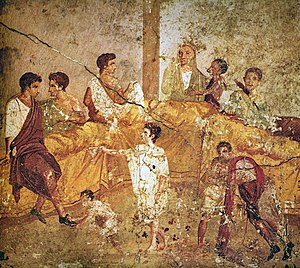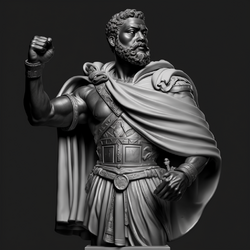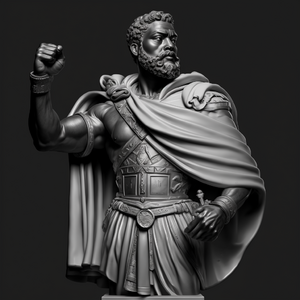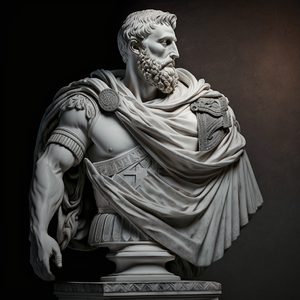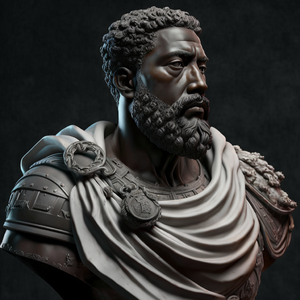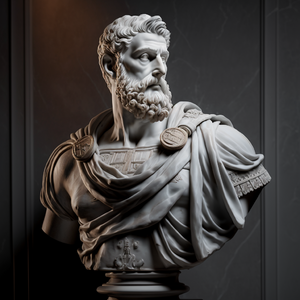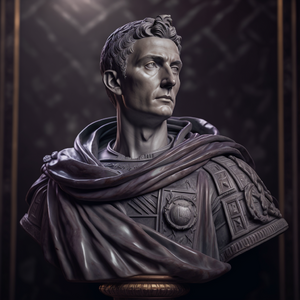Julian Empire
This article is incomplete because it is pending further input from participants, or it is a work-in-progress by one author. Please comment on this article's talk page to share your input, comments and questions. Note: To contribute to this article, you may need to seek help from the author(s) of this page. |
The Serene Julian Empire Imperium Iulianum | |
|---|---|
| Motto: Virtus, Auctoritas, Victoria Virtue, Authority, Victory | |
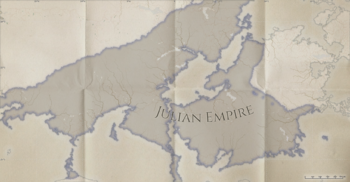 This map shows the peak of the Julian Empire's territory sometime in the 720s. | |
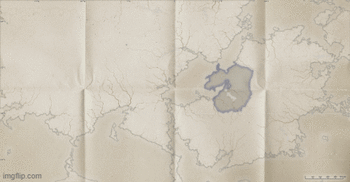 The Julian Empire as grew to its peak size from its initial city-state. | |
| Capital | Julia (8 B.C.E. - 456 C.E.) Magnus (456 C.E. - 593 C.E.) Reginum (593 C.E. - 722 C.E.) Julia (722 C.E. - 892 C.E.) |
| Largest city | Julia (at peak) |
| Official languages | Julian-Latin |
| Religion |
|
| Demonym(s) | Julian |
| Government | Absolute Monarchy |
| Caesar | |
• 2 B.C. – 14 C.E. | Tiberius Aurelius Julius (Primus Rex) |
• 14 C.E.– 37 C.E. | Octavius Magnus Julius |
• 37 C.E. – 54 C.E. | Claudius Sextillus Julius |
• 54 C.E. – 68 C.E. | Maximus Aurelius Julius |
• 69 C.E.– 79 C.E. | Flavius Regulus Julius |
• 79 C.E. – 117 C.E. | Decimus Magnus Julius |
• 117 C.E.– 162 C.E. | Gaius Valens Julius |
• 162 C.E. – 209 C.E. | Martinius Flava Julius |
• 209 C.E. – 268 C.E | Justus Illius Julius |
• 268 C.E. – 306 C.E. | Marcus Aulus Julius (Optimus Princeps) |
• 306 - 389 C.E. | Heraclius Julius |
• 389 C.E. - 416 C.E. | Marcus Aulus Julius I |
| Legislature | Imperial Assembly (after 723) |
| Establishment | |
• Rex Tiberius Aurelius Julius unifies the city-state | September 9th, 2 B.C.E. |
• Caesar Decimus Magnus Julius establishes the Julian Empire, naming himself Caesar. | February 14th, 129 |
| Area | |
• Total | 10,652,385 sq mi (27,589,550 km2)At the peak of the empire. |
| Population | |
• 726 estimate | 59 - 76 Million (peak) |
The Julian Empire was a vast and powerful empire that existed on the Adulan continent between the 2 B.C.E to 894 C.E. The Empire is often associated with the grandeur and sophistication to be expected of the far reaching civilization, but it had a distinct identity and culture of its own. The Julian Empire is said to have emerged from a small city-state founded by Tiberius Aurelius Julius after defeating his brother Romulus Joanus Custodes in a bloody civil war after the death of their father. The father conferred half of the city state to the elder brother Tiberius, and the other more lucrative and powerful section to his younger brother Romulus. After 10 years of bloody conflict, Tiberius while leading his soldiers on the field, was able to slay his brother and secure the throne for himself and formed the Kingdom of Julia; thus marking him as Primus Rex (First King) of what would eventually evolve into the Julian Empire. The city that became the capital of the kingdom he would rename after himself (Julia) and transformed what was once a humble settlement teetering on starvation into a sprawling metropolis. Under the leadership of a series of capable emperors and daring generals, the Julian Empire expanded its borders, conquered neighboring states, and became a dominant force in the ancient world. It lasted for over eight centuries, leaving behind a rich legacy of art, architecture, literature, and philosophy.
The Julian Empire was renowned for its military prowess and strategic genius. Its armies were well-trained and well-equipped, capable of conquering city-states, nations, tribes, and the hostile wilderness. The empire was divided into provinces, each governed by a governor appointed by the emperor and subject to the power and authority of said Emperor. To control these governors, the Emperors routinely barred their subordinates from the opportunity to hire personal protection or use militia as bodyguards. Instead, the Governors were forced to use the Custodes Regis which they had to pay with their own tax revenue and answered directly to the King. The provinces were administered by a complex bureaucracy, which ensured the smooth functioning of the state. The capital of the Julian Empire, Julia, served as the center of trade, culture, and politics. The city was renowned for its grand architecture, public works, and cultural institutions.
The Julian Empire was a polyglot state, with a diverse population speaking different languages and practicing different religions. The official language of the empire was Julian, but Greek and other languages were also spoken. The empire was tolerant of different religions, and its citizens were free to practice their faiths as long as they did not pose a threat to the state. The Julian Empire was a melting pot of different cultures and traditions, and this diversity enriched its art, literature, and philosophy. Well known for its grand architecture, which combined the best of neighboring cultures and religious styles, the Empire developed a rich cross-section of their surroundings into their every-day lives. Its buildings were massive and imposing, yet elegant and refined. The most famous building in the empire was the Temple of Skora, the head deity in the state sponsored polytheistic pantheon worshipped in the empire.
The literature of the Empire (which was quite expansive as literacy in the region was at an all time high according to anthropologists), which included epic poems, dramas, and philosophical treatises, were housed in a massive library in the center of the capital known as the Library of Scipii. The most famous epic poem of the empire was the Ars Poetica, written by the poet Vrangian. The poem tells the story of Protellus, a prince who journeys to the northern reaches of Adula and becomes the founder of "less civilized" nations beyond Julia, however his love for his homeland draws him back to the Empire where he devotes himself to its betterment. The poem ends with the phrase "Poetry of the people, not the world". The Ars Poetica was considered the national epic of the Julian Empire, and it inspired generations of poets and writers; many of whom considered the text to be the baseline for their own works. Moreover, dramas were believed to have been a staple of the empire, which were performed in grand theaters throughout the empire. The most famous playwright of the empire Justus Hadrian Marius, who wrote powerful tragedies that explored the themes of power, revenge, and fate, also acted prolifically in his own plays and the plays of his fellow playwrights. The themes of reflections on the nature of the universe, human existence, and morality were common among plays.
Due to the Julian Empire's vast extent and long endurance, the institutions and culture of Julia had a profound and lasting influence on the development of language, religion, art, architecture, literature, philosophy, law, and forms of government in the territory it governed. The Julian-Latin language of the Julians evolved into the Julianic languages of the medieval and modern world (like modern day Julian-Latin spoken in parts of Sera and Seran language itself. The Empire's adoption of Islam imported from the North led to the formation of a medieval multi-theistic state. Julian art had a profound impact on the Seran Reclamation and Era of Discovery, as well as other enlightenment periods across the continent and sub-continent. Julia's architectural tradition served as the basis for Julianesque, Reclamation and Neoclassical architecture, and also had a strong influence on Islamic architecture in the region. The rediscovery of Julian science and technology in Adula led to the Scientific Reclamation and Scientific Re-Discovery. The corpus of Julian law has its descendants in many modern legal systems of the world, such as the Constitution of Unified Sera, while Julia's republican institutions have left an enduring legacy, influencing the Adulan city-state republics of the medieval period, as well as other modern democratic republics.
Etymology
The Julian Empire takes its name from the Julian Dynasty, which was founded by Tiberius Aurelius Julius in 2 BCE. The dynasty took its name from the Latin word "Julius," which means "belonging to Julius," a common family name that was originally derived from the name of the god Juranus. The early history of the Julian Dynasty is somewhat obscure, and there is much debate among historians about the origins of the dynasty and its early members.
Some scholars believe that the first Julius was descended from the legendary Julian hero Skora, who according to Julian myth was said to have ascended to godhood after being slain while fighting to defend a mythical city known in plays and poetry as Lyria from rampaging marauders. Skora was killed and his body burned in the sacking of the city, but his soul is said to have been risen to the heavens where he took a seat among the Julian Pantheon. The existence of Skora Mans Gallus is well recorded, however his genealogy is disputed and the claim that he was the progenitor of the Julius clan thus far unsubstantiated. Others argue that the Julians were a branch of the gens (clan) Julia who founded the city-state itself (though were not the ruling clan before unification after the conclusion of the civil war).
Arts and Sciences
Geography and Demographics
Society
Government and Military
Economy
History
The main article for this section is History of the Julian Empire The history of the Julian Empire covers the history of ancient Julia from the formation of the Kingdom of Julia in 2 BCE until the collapse of the Julian Empire in 868 C.E. through mismanagement and opulence of the ruling Senate, and finally the fall and sacking of the city of Julia in 894 marking the end of the 8-century long nation. Julia started as a powerful city-state in an area that was predominantly ruled by other city-states or tribes. Through a mix of generous diplomacy and a strong, capable military and advanced tactics, the Kingdom quickly expanded its territorial possessions and allies. Very soon, the Kingdom obtained its first vassals in the eastern portion of South Adula, thus marking the beginning of the Empire.
Julia had begun expanding shortly after the founding of the Kingdom of Julia in 2 BCE, though it did not expand outside the confines of the northern portion of South Adula until the beginning of 112 C.E. under the rule of Emperor Decimus Magnus Julius which would continue under subsequent emperors. It would not be until the rulership of the Optimus Princeps Emperor Marcus Aulus Julius did the Empire see its most pronounced growth and conquests. Civil war engulfed the Julian state in the early 6th century between the Imperial Assembly and Emperor *Placeholder* which saw the formation of the first fractures in the foundations of the Empire and the end of the rulership of Julia by powerful, authoritarian Emperors.
The Imperial Assembly was viewed by many Julians as overtly corrupt and self-serving. The IA held lavish balls and built castles, statues, and villas for themselves while plague tore through the capital in 706 C.E.. The IA, according to plays and poetry refused to do anything to alleviate the suffering of the populace. The IA further complicated rulership by immediately passing laws barring individuals not already on the Imperial Assembly from running for office and ensuring that the only way that an individual could be given a vacant seat would be by vote of the majority of the IA; effectively disqualifying the entirety of the population from being able to sit on the council.
First Julian Civil War
The Julian Civil War was a pivotal moment in the history of the Julian Empire, serving as the catalyst for the rise of the Kingdom of Julia and eventually the Julian Empire itself. This conflict between brothers Tiberius Aurelius Julius and Romulus Joanus Custodes was marked by intense political and military struggles, as each sought to gain control over their father's legacy and the future of their city-state.
Background and Causes of the War
The origins of the Julian Civil War can be traced back to the death of the father of Tiberius and Romulus, whose name is not recorded in historical texts. This father, who was the ruler of the small city-state, had divided his domain equally between his two sons, with Tiberius receiving control of one half and Romulus receiving the other, more prosperous half.
Initially, the two brothers coexisted peacefully, with Tiberius focusing on the development of his own territory and Romulus expanding his own power and influence. However, as the years passed, tensions between the two began to mount. Romulus believed that he had been unfairly disadvantaged by their father's decision to give him the less desirable half of the city-state, and he began to harbor resentment towards Tiberius.
Meanwhile, Tiberius grew increasingly wary of his younger brother's ambitions and began to take steps to shore up his own power and protect his interests. This included building up his army and consolidating his control over key resources and trade routes.
The conflict between Tiberius and Romulus finally came to a head when Romulus made a bold move to seize control of Tiberius's half of the city-state. Tiberius, realizing that his brother posed a significant threat, mustered his own forces and declared war against him.
Course of the War
The Julian Civil War lasted for ten long years, and was marked by numerous battles and skirmishes between the two sides. Tiberius proved to be a formidable military commander, and was able to score several significant victories against Romulus's forces.
Despite Tiberius's military prowess, however, the war was far from one-sided. Romulus was able to rally a significant amount of support from his own followers, and was able to hold onto his territory despite Tiberius's best efforts to dislodge him.
As the years passed, the conflict between the two brothers became increasingly brutal and ruthless. Both sides engaged in acts of treachery and betrayal, and the conflict began to take a heavy toll on the civilian population of the city-state.
Ultimately, the turning point of the war came when Tiberius personally led his forces into battle against Romulus's army. In a fierce and bloody conflict, Tiberius was able to slay his younger brother and secure the throne for himself.
Aftermath and Legacy
With his victory over Romulus, Tiberius emerged as the undisputed ruler of the city-state. He renamed the city after himself (Julia) and set about transforming it into a thriving metropolis.
Under Tiberius's rule, the Kingdom of Julia began to expand its power and influence, eventually evolving into the Julian Empire. Tiberius himself became known as the "Primus Rex," or "First King," of the Julian Empire, and his reign marked the beginning of a long and prosperous era of Julian history.
Despite the violence and bloodshed of the Julian Civil War, it was also a transformative moment in the history of the Julian Empire. It solidified Tiberius's grip on power, and set the stage for centuries of expansion and growth under the banner of the Julian Empire.
In later years, the story of the Julian Civil War would become the stuff of legend and folklore, inspiring countless stories and tales of brotherly conflict and political intrigue. But for the people of the
The Lykosian War
Sometime in 188, the King of Lykos Demetrius V the Younger sent emissaries to the capital city of Julia. The event was recorded by Caesar Marinius' court scribe in a document called the Acta Memoranda, which contained the reports, conversations, and other important events involving the Caesar. Within this report the scribe detailed how the visiting emissaries to the city demanded that Caesar Martinius relinquish any claims (including de jure claims) that he may have on Lykos, a monthly tribute, the Caesar's daughter as a concubine, among other demands under threat of violence. In response, Caesar Martinius had the emissaries drawn and quartered and their remains returned to Lykos. In response, the Kingdom of Lykos conducted a series of raids on the villages to Julia's south; inflicting severe damage to both the populace residing there and the bread-basket of the empire itself.
Caesar Martinius replied in kind, launching his own series of raids and placing bounties on the scalps of Lykosians. The war would officially start on November 11th, 196 when a contingent of Lykosian soldiers encountered Legio IV while returning from a raid. Although at first the two sides did not engage each other, eventually a fierce skirmish would break out between the opposing forces. King Demetrius V declared war on the Julian Empire that day, while Caesar Martinius declared war on November 12th.
Supported by a coalition of nearby city-states and petty Kingdoms, many historians believe that the *PLACEHOLDER*
Invasion
The Sacking of Lykos
Aftermath
From Empire to Republic
The Second Julian Civil War
The Five Kings of Julia
The Five Kings of Julia were a series of rulers who held the throne of the Kingdom of Julia following the reign of Tiberius Aurelius Julius, the founder and first king. After his successful consolidation of power, the kingdom experienced a tumultuous period marked by a succession of rulers attempting to hold onto, consolidate, and expand their power and authority. Each king faced a unique set of challenges and opportunities, ranging from military conquests and political intrigue to cultural and economic developments. It is during this time period that the city of Julia began to expand with massive public works and amenities uncommon outside of the city-state. The history of the Five Kings of Julia is one of political intrigue, military conquest, and cultural and economic growth sparked by constant pressures in the form of internal rivalries and political posturing that forced Kings to act. Many historians consider the time period a fascinating study of leadership, power, and the pursuit of imperial ambitions in a world that was forced to change rapidly. Throughout this time period, the Kingdom of Julia experienced significant transformations, both in terms of its internal political structure and its external relations with other regional powers. From the charismatic and ambitious leadership of the second king, to the stabilization and consolidation efforts of the third and fourth kings, to the rapid expansion and eventual decline of the fifth king, the Five Kings of Julia are a captivating case study of leadership in a complex and dynamic empire. Despite the challenges faced by each of the five kings, their reigns left a lasting impact on the Julian Empire, shaping its culture, institutions, and political landscape for generations to come.
The Emperors of Julia
| Portrait | Name | Reign | Succession | Life details |
|---|---|---|---|---|
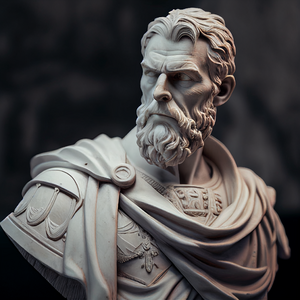 |
Caesar Decimus Magnus Julius | February 14th, 129 - October 30th, 167 (38 years, 8 months and 16 days) |
Upon the death of his father Flavius, Caesar Decimus was crowned as King initially. After conquering and vassalizing the nearby state of Rhodes, Decimus proclaimed himself Caesar and the beginning of the Empire. | December 1st, 83 – October 30th, 167 (83 years, 10 months and 29 days) Caesar Decimus expanded on the "secret police" employed by his father, turning them into the Praefecti Fidelis. These units served as both secret police, royal bodyguard, and special super-heavy infantry during battles. Caesar Decimus used them to great and terrifying effect during the siege of Rhodes in 146, and during his fierce crackdown of political opponents in 154. Died of Natural Causes. |
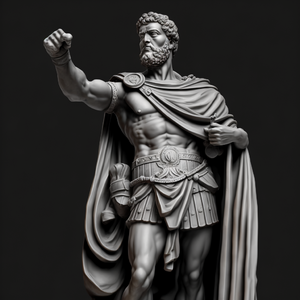 |
Caesar Gaius Valens Julius | October 31st, 167 - May 12th, 199 (31 years, 6 months and 12 days) |
Through marriage to Caesar Decimus' eldest daughter as Caesar Decimus had no legitimate sons to inherit | September 2nd, 136 - May 12th, 199 (38 years, 8 months and 16 days) Gaius was a patron of the arts, and under his rule, the empire experienced a period of cultural and intellectual flourishing known as Pax Juliana. He was a lover of poetry and music, and many talented artists and scholars were drawn to his court. Gaius himself was a skilled musician, and he often performed at court gatherings and banquets. Caesar Gaius died in his sleep after fighting influenza. |
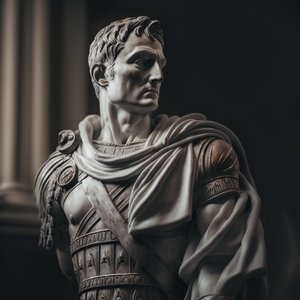 |
Caesar Martinius Flava Julius Praeclarus Vindex |
May 14th, 199 - August 8th, 251 (52 years, 2 months and 25 days) |
The eldest son of Caesar Gaius, inherited the throne with the support of his younger brother and sister who helped managed the empire as "consuls", insuring one of the most stable transfers of power in Julian history. | November 20th, 168 - August 8th, 251 (82 years, 8 months and 19 days) During Caesar Martinius' reign, the neighboring Kingdom of Lykos declared war on the Empire, marking the end of Pax Juliana and the beginning of the Julian Conquest. Caesar Martinius was captured by soldiers in the Lykoan Army, where he is said to have befriended them and foretold their execution upon his release. The Lykoans thought the Caesar was joking and did not take his threat seriously. True to his word, when Caesar Martinius was released, he returned with Legio IX to where the Lykoan soldiers camped and executed them all. Died of natural causes. |
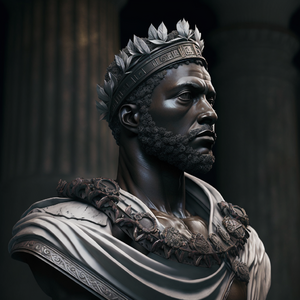 |
Caesar Justus Illius Julius Bellator Eximius |
251 C.E. - 268 C.E. | - | - |
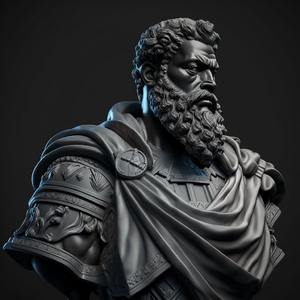 |
Caesar Marcus Aulus Julius Optimus Princeps |
268 C.E. - 306 C.E. | - | - |
 |
Caesar Heraclius Julius | 37 C.E. - 54 C.E. | - | - |
 |
Caesar Marcus Aulus Julius II | 37 C.E. - 54 C.E. | - | - |


